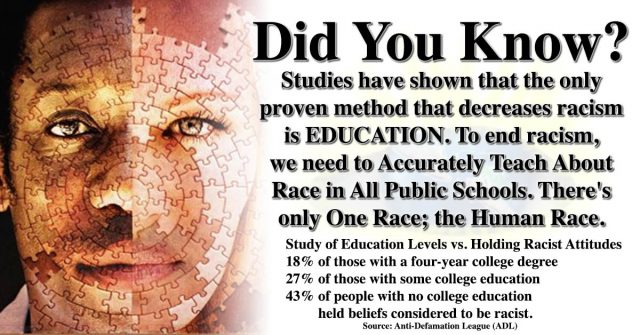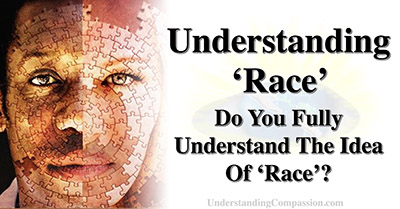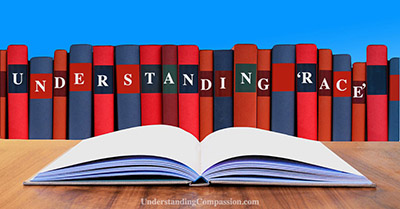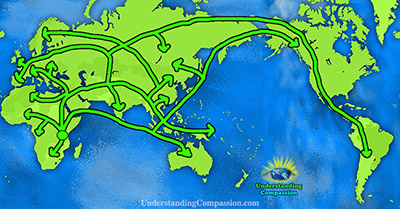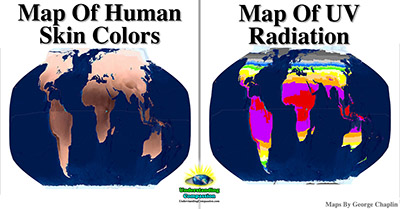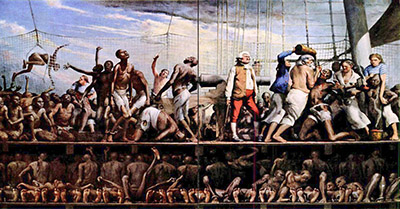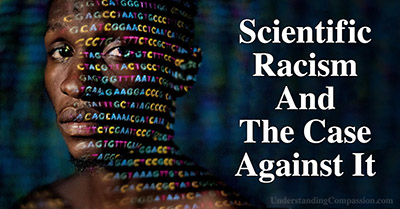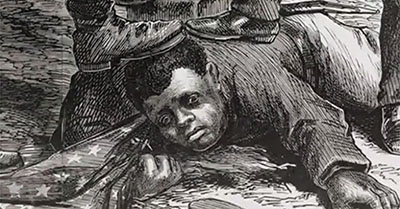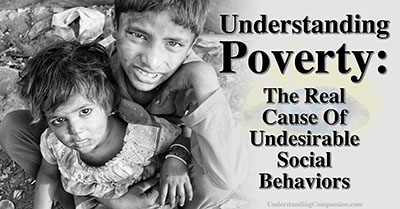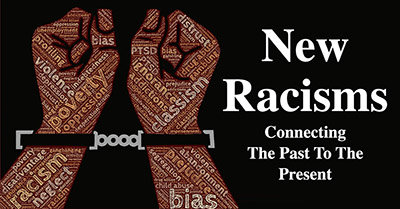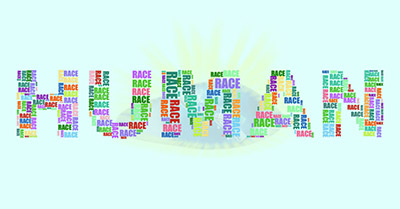‘Race’ is an interesting topic, and it is one that everyone seems to have a different opinion on. Some say it is a very important issue today, some say they’ve suffered as it’s been used against them, and some say it’s not even a real concept. It’s a question asked on most government forms, and even when filling out a job application. Yet what is it really asking for when it says “Mark your race”? For one’s ancestry? For one’s cultural background? For one’s native language? For one’s skin color?
If ancestry, all humans have genetic links and originate from the same population in Africa[1], and genetic tests have shown that we’re often most genetically similar to people of different skin colors.[2] If cultural background or native language, Americans tend to have parents and grandparents with varying cultural backgrounds, languages and origins who immigrated to the great melting pot known as America. If it’s asking for skin color, many people from Brazil, America, Israel, France, Russia, and numerous other countries have the caucasian defined white skin, and many people from India, Ethiopia, Saudi Arabia, Brazil, Australia and numerous other countries have black and brown skin. In fact, someone with white skin can become someone with dark skin after a single day out in the sun.
But What Is ‘Race’ Really?
Who taught us what it means? Where did we learn accurate information about it? The confusion around the idea of ‘race’ is very real, and for good reason: ‘Race’ is not a subject seriously taught in public schools. Currently, students must rely on the teachings from often misinformed parents and an often racially biased media to get much of their education on the topic of ‘race.’
The majority of people living in the United States still operate on the assumption that there are legitimate biological ‘races’ within the human species, and that these racial categories align with physical features.[3] Yet science has proven that such biological ‘races’ do not exist, and studies have shown that the historically recent way of trying to group people into ‘races’ based on physical characteristics and skin color has no foundation in biology and genetics.[4]
Studies Show That Only Education Decreases Racism
Rather than forming opinions about what can reduce racism, let’s look at factual studies. Research has shown that higher education levels are connected to decreases in racist opinions and attitudes.[14]
In 2016 researchers from the University of Toronto examined three decades of data from the General Social Survey, which has periodically tested and measured Americans’ attitudes on a wide range of topics since 1972. Of the 44,873 surveyed for verbal ability and education levels, 28.8% of the highest scorers held opinions considered racist, compared to 45.7% of the lowest scorers who held opinions considered to be racist.[14] Head researcher Geoffrey T. Wodtke concluded that, “Higher verbal ability is closely linked to rejection of overtly prejudicial attitudes among cohorts socialized during or after the 1950s and 1960s.”[14]
A study conducted by the Anti-Defamation League (ADL) found that 43% of Americans with no college education held anti-semitic beliefs considered racist, compared to 27% with some college education, to just 18% of those with a four-year college degree holding anti-semitic beliefs considered racist.[15]
Another study from Bowling Green University found that as education levels increased, racial tolerance also increased and that racist opinions decreased, concluding that, “higher levels of tolerance are more likely to be found in individuals with higher levels of intellectual development.”[16]
Further studies conducted compared childhood test scores with adulthood racist ideas. In studies by Dr. Hodson and Dr. Bussen, they followed babies from birth in both 1958, and also from 1970. The children in the studies had their intelligence assessed at age 10 or 11; then again as adults ages 30 or 33, and their levels of social conservatism and racism were measured. The researchers found that low test scores in childhood corresponded with racism in adulthood, and that conservative ideologies accounted for much of driving them towards racist attitudes.[17][18]
Cognitive ability; broadly defined as a set of mental skills that allow an individual to learn from experience, adapt to new situations and solve problems, understand and manipulate abstract concepts, and use knowledge to act on the environment, is widely held to have a profoundly liberalizing influence on racial attitudes.[14]
Dr. Wodtke explains that, “Higher cognitive ability promotes tolerance of racial out-groups and a sincere commitment to racial equality. Indeed, several studies now provide evidence that higher cognitive ability is associated with lower anti-black prejudice, lower authoritarianism, greater tolerance of out-groups, and greater support for egalitarian values among whites.”[14][19][20][21][22]
The research shows that when students receive higher education, they develop more tolerant attitudes, and attitudes of racism decrease. Public schools need to include accurate curriculum and classes that teach students about race: that science and biology have proven that there are not separate human races. We’re truly only one human race.
“An advanced education attenuates prejudice and fosters a real commitment to racial equality by providing knowledge about the historical, social, and economic forces responsible for inequality; teaching the dangers of prejudice; neutralizing fear of the unknown; promoting democratic norms of equality and civil rights; and facilitating contact between “racial” groups.”[22a]
Is It Important To Learn Accurate Information About Human ‘Races’?
When considering if it is important to learn accurate information regarding the idea of ‘race’ and the equality of humans, in order to create a kind and compassionate world, several key factors must be considered:
1. Has the idea of ‘race’ impacted human history in any significant ways,
2. Has it been dangerous or a threat to humanity in the past and is it still a danger today, and
3. Does it continue to affect people significantly in the present.
From The Days Of Slavery…
To The Civil War…
To World War 2…
To Today…
From the very beginning of America, when European explorers made their first steps on a land occupied by Native Americans, ‘race’ was used as a justification for conquest and the seizing of lands. For hundreds of years thereafter, slavery was a peculiar institution used by and for the wealthy. ‘Race’, namely black skin, was created as the physical marker of a slave by plantation owners, identifying specific people as ‘less than human’, and who thereby were not able to leave forced labor and claim the rights set forth under the authority of Christianity of the time; that all who converted should be saved and set free.
The most devastating war in America’s history, the Civil War, was fought as the nation divided in two over slavery; over differing ideas of ‘race’, the equality of all people, freedom and how humans should be treated.[5]
Yet again, in the largest war the world has ever seen that left an estimated 85 million people dead[6], World War 2 centered around the German Nazi party’s belief that there existed a superior ‘Aryan race’ and that all other ‘races’ were only fit for death.
It is without a doubt, that ‘race’ is the most dangerous idea of our time. ‘Race’ seeks to divide humanity, and a compassionate and accurate understanding on the topic of ‘race’ seeks to unify humanity. It is essential for everyone to understand the dynamics of this severely under taught subject, as such knowledge is also required to participate in a diverse and compassionate democracy. Inaccurate ideas, opinions and attitudes on ‘race’ will not go away with time, but can only be liberated through true and accurate education on the subject. As civil rights leader Dr. Martin Luther King Jr. wrote on the topic of healing ‘racial’ divides, “‘Wait’ has almost always meant ‘Never,’ ” and “Justice too long delayed is justice denied.”[7]
Everyone needs an accurate education on the topic of ‘race’ in order to fully understand one of the most impactful and dangerously influential subjects in human history, and which still permeates our 21st century society. Every generation needs to learn the same fact based knowledge supported by scientific studies when it comes to ‘race’ and human variation, to make a better world for us all.
Join us at Understanding Compassion in the following 10 free lessons on ‘race’ and enable yourself to truly Understand ‘Race’; one of the most significant, important and under-taught subjects of our time:
1. Understanding ‘Race’
2. ‘Race’, Evolution And Natural Selection: Understanding The Terms
3. Human Evolutionary History: The Development Of Humans
4. The Biology Of Human Variation
5. The History Of The Idea Of ‘Race’
6. Scientific Racism And The Case Against It
7. The Overtly Racist Societies Of The 20th Century
8. Understanding Poverty: The Real Cause Of Undesirable Social Behaviors
9. New Racisms
10. Beyond ‘Race’: Every Generation Needs An Education On ‘Race’
You are Loved.












